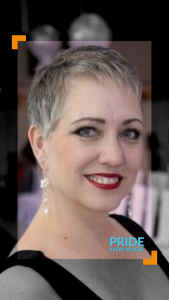 June is PRIDE month. Even before I joined the leadership team for the SAS PRIDE Employee Inclusion Group, I always used my Work/Life blog in June to write about LGBTQ youth and how we can support them. This year I struggle to find words that are adequate to educate, support or comfort. How can anything I write provide hope amidst the fear, grief, anger, and exhaustion that many of us feel right now?
June is PRIDE month. Even before I joined the leadership team for the SAS PRIDE Employee Inclusion Group, I always used my Work/Life blog in June to write about LGBTQ youth and how we can support them. This year I struggle to find words that are adequate to educate, support or comfort. How can anything I write provide hope amidst the fear, grief, anger, and exhaustion that many of us feel right now?
It is a difficult time to be a youth. Developmentally, our young people should be turning to their friends for support and to help with identity development- enter COVID. In this pandemic, our LGBTQ youth have less positive social interaction (social connection that is important to protect them from suicidality) and an increase in negative social interactions (because they are confined to environments that might be unsupportive or even abusive). Our black LGBTQ youth get to add even more fear for their own safety, anger at systemic racism, and living in a world that tells them they are “less than” because of the color of their skin.
How do I, a white, cis-gendered, straight woman even begin to give advice on how we support these kids and teens right now? My friend, Donna Mejia, who is an associate professor and director of graduate studies in dance at CU Boulder, advised that we must all “stumble forward,” so here I go.
- Check in with the children/teens in your life.
Show interest in what they are interested in. Ask them to tell you about their favorite music, YouTuber, video game, influencer on Instagram. Ask them to teach you something. A few years ago I asked my teen to teach me how to take selfies. Not only was it hysterical at the time, we continue to laugh and joke about it years later. You don’t have to ask them about sexuality, gender, or race specifically; in fact, I would not recommend leading with that. Just spend some time building trust and conveying your interest in their lives.
- Signal your openness to talking about issues around gender, sexuality and race.
One of the best things I learned in Divinity school was to use your space to signal your willingness to discuss difficult issues. Leave a magazine article open on the coffee table. Suggest watching a movie that you know has positive LGBTQ characters (stay tuned for a blog later this month by the PRIDE EIG with suggestions). Facetime with friends and have conversations about race, gender and sexuality where your kids can hear you. Let them hear you being open to listening and learning from your friends.
- LISTEN
I think in response to our own experience of being told “because I said so”, parents these days overexplain. The problem with overexplaining is that the more you talk, the less you listen. I used to tell parents to listen twice as much as they talk. I am modifying that for a world in crisis- I want you to talk ¼ of the time that you listen.
- Be transparent about the steps you are taking to learn about these issues.
You cannot log onto social media or open a news site without finding suggestions on things to read to help you learn about race, gender, LGBTQ issues and intersectionality. It can be overwhelming. Pick something and start somewhere. Not sure where to start? Click on these links. Read a blog- Supporting Black LGBTQ Youth Mental Health. Read an article- How to Be An Ally During Times of Tragedy. Start reading a book- 10 LGBTQ books to read for Pride Month. Listen to a video- 2020 Time to Thrive: Youth Panel on Intersection of Race, Sexual Orientation, and Gender Identity.
I want to end by encouraging you to investigate a campaign just launched by The Trevor Project called “Pride Everywhere”. Many LGBTQ youth look forward to PRIDE parades as an opportunity (sometimes their only opportunity) to be safe, out and proud. With COVID necessitating that most of these celebrations be cancelled, The Trevor Project wants to remind youth that while “sheltering at home can be extremely difficult right now… that PRIDE isn’t just about parades, it’s about finding our strength even in times of challenge, sharing our joy even in moments of pain, and creating space to express and celebrate who we are.”
I know many of you have suggestions of other ways to support our youth right now! I would love for you to share!
